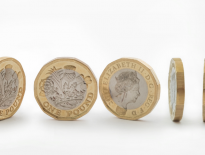Money matters for business and life
I guess if you’re like most people, you have your investments handled by your financial adviser? And I’m guessing you entrust that person to invest wisely and optimise the return on those investments. It may be however, you don’t know the options that are available and whether to question your FAs choice of portfolio.
The intention of this article is to give you an overview of the choices available to you and the pros and cons of each. So let’s take a look.
Cash and near cash
Is your money in the bank or building society safe? Certainly, many believe so. Subject to changing compensation levels in case of bankruptcy, it is. You’ll get £100 back for £100 deposited. However, the value of your savings isn’t necessarily safe. If the interest you earn doesn’t keep up with the rising cost of the things you want to buy, then your £100 taken out later might only buy say £96 worth of goods in the shops. That’s why we need to invest.
You can explore near cash holdings such as Certificates of Deposit, Floating Rate Notes and Time Deposits or even consider National Savings but none of these will yield a potential capital gain as well as interest while you’re invested.
When you invest in pooled funds (Unit Trusts and OEICs – Open Ended Investment Companies), your fund manager will normally buy your investment back from you, when you want to sell, turning your holdings into cash. He/she must therefore have ready cash to be able to do so.
The cash needed to redeem your holdings is often stored in a so-called Money Market Fund which sometimes can be a place for you to place your savings when interest rates there are higher than in your high street bank.
As we approach the stock market, I suggest three golden rules to remember –
- Firstly, always invest where you can potentially make your original investment grow – that is, make a capital gain; while also receiving interest (dividend or yield). Always earn these two kinds of return on every penny you invest!
- Secondly, in today’s fast-changing financial world, never invest where your money is locked in or not liquid enough to allow instant withdrawal. Remember, bricks and mortar locks your money in.
- Thirdly, always remember that the risk of any investment depends on the changing economic, social and political events surrounding the type of investment you hold. Always question when you read or hear that one investment is low risk and another is high risk. It’s no such thing!
So, if money held in cash loses its value and investment in direct property, such as buy-to-let, is battered by nasty tax erosion, where to next?
Fixed interest investments
There are essentially just two main ways in which you can invest through the stock market. Lend your money at interest or buy ownership of companies by purchasing shares. You can lend your money to the UK Government, global governments or to business enterprises through stock exchange quoted companies in the UK or worldwide.
The Fixed Interest route means you, or your pooled fund manager acting for you, lends your money to governments or companies. In the fund supermarket you walk up the fixed interest aisle. On the shelves are bundles of fixed interest funds offered by a good number of fund managers, all wanting you to choose to invest with them.
Each fund offered will have a Fact Find Sheet where you can read all about it! Remember – each deal your manager agrees to will simply pay interest and return the capital to the fund at the end of the loan term. The fund may have as many as 50 or more loan deals included.
Particularly look for the current yield (interest rate). If the rate seems very low, then the risk is likely to be reflected by the credit ratings of the holdings. So, if 100% of the holdings are shown as triple AAA credit rated, then the likelihood of a failure to pay interest or return the loan capital when due is very small.
Suppose the rate seems tempting and attractive, a yield say of 4% or higher? Then look for the credit rating again. You’ll find ratings of BBB or lower. This means the probability is that at least some of the loans your manager made for you could fail to pay back the loan or interest when due. You employ your fund manager to research and balance the possibility of risk and reward.
How can your manager make a capital gain in this market for you? Suppose the yield (interest) on your chosen fund is a variable yet reasonably stable 4%pa ongoing and interest rates at the bank fall? Those with money on deposit at the bank want to move their money to a better interest rate and so choose to buy into your fund. Now there is a demand for the investments your fund holds. Supply and demand means the price of your holdings rise making your original savings grow – a capital gain is made.
So two kinds of return are achieved, affected by the political, economic and social events surrounding your investment. The receipt of interest and a capital gain.
Equally though, if interest rates in the bank rose then your capital could fall as people sell your fund holdings to go for greater safety by holding money in the bank once again.
Where to next?
Property fund investment
Investing in commercial property provides potential for regular income and growth of your savings, capital growth as property prices rise, if they do, and rental income from the fund’s tenants.
Your fund manager will purchase shops, office blocks and industrial units. Your fund can be limited to the UK or property across global markets.
What percentage of your money would you be happy with in say retail (shops)? What percentage in office blocks and then industrial units? Current High Street worries for the retail trade against online sales might be of concern if your fund has a big percentage of retail ownership.
These funds are supported by foreign investors who are sensitive to the rise or fall of sterling as a currency. They lose when sterling falls against the investors home currency. This caused the inability of many such funds to allow investors to redeem their holdings in 2016 when the UK voted for Brexit causing sterling to crash.
There is a clause in the fund details which allows the manager to defer buying back your investment so your funds could be locked in for an unspecified time. Property takes time to sell and convert to cash.
It’s true of all pooled funds, especially those using illiquid assets in the mix, that circumstances can arise where the fund manager is unable to redeem an investor’s holding immediately – a concern which has been growing in the industry.
In the long term, in the past, equities have always provided greater gains for investors than any other asset. Let’s take a look.
The equity market
Shares or equities allow your fund manager to buy part ownership of the companies in which he invests your money. As the manager has a mountain of money to invest from many investors like you, he can buy many shares across many sectors of the market.
You can choose between passive or actively managed funds. Passive funds simply seek to follow an index like the FTSE 100 Index up or down, while an actively managed fund has your manager hopefully poised to pick the best options. You pay more for the active manager so many prefer the lower costs of passive funds.
Go up the equity aisle of your online fund supermarket and you’ll find funds investing in UK shares – large companies and small and specialist, or go global to Europe, Japan or even China. Technology, gold and precious metals, emerging market equity funds – an endless supply of opportunity to speculate and accumulate wealth.
The content here is designed to open the door into this world for you and so isn’t comprehensive. You’ll need to learn more before taking advantage of some of the ideas and outlines given here.
How do you choose a financial adviser if you need one? How can you invest to maximise tax free returns? How can you have the government add to your savings through generous tax contributions to your investment? How can you reduce risk? How can you make profit in all market conditions? Is gold a good investment? Bitcoin?
Like life in general, investment has its ups and downs, so profits are not guaranteed. You need to understand more of how prudent investment can be profitable and how to reduce the risk of financial loss.
Knowledge is power and knowledge of the world of money is the power to build a secure financial future and benefit.
Originally posted 2021-01-06 16:28:00.
- Money matters for business and life - August 11, 2025






